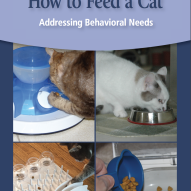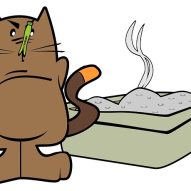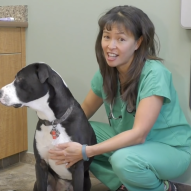How to feed your cat | Dr. Justine Lee, DVM, DACVECC, DABT, Board-Certified Veterinary Specialist
Are you feeding your cat correctly? Believe it or not, there are specific ways you are supposed to be feeding your cat. A recent Consensus Statement, “Feline Feeding Programs: Addressing Behavioral Needs to Improve Feline Health and Wellbeing” just came out from the American Association of Feline Practitioners (AAFP). In this statement, the authors focuses on “how to feed” while addressing behavioral needs. This statement was written by the experts in the feline world:...
Read MoreWhy does cat pee stink worse than dog pee? | Dr. Justine Lee, DACVECC, DABT, Board-certified Veterinary Specialist
For those of you who have ever fostered a tomcat or had an alley cat in your backyard, you can attest to the fact that cat pee reeks way more than dog pee! But why? Cats have much stronger concentrated urine than dogs. The normal concentration of urine is based on specific gravity (often abbreviated “sp. gr.” or “spgr,” for those really lazy vets, such as myself), which measures the density of a liquid (i.e., how concentrated that liquid is). Using a simple tool called a refractometer,...
Read MoreMy dog was just diagnosed with gastroenteritis | Dr. Justine Lee, DACVECC, DABT, Board-certified Veterinary Specialist
Was your dog (or cat) just diagnosed with gastroenteritis? What is gastroenteritis in dogs and cats? Gastroenteritis is an acute inflammation of the gastrointestinal tract, and typically causes common presenting clinical signs of vomiting and diarrhea. This is a frequent cause for presentation to the emergency room in both dogs and cats. There are numerous causes of gastroenteritis including:* • Bacterial infections (e.g., Clostridium overgrowth) • Viral infections (e.g., parvovirus,...
Read MoreConnection between Grain free dog food diet and heart disease Dilated Cardiomyopathy in dogs | Dr. Justine Lee, DACVECC, DABT, Board-certified Veterinary Specialist
Recently, a grain-free dog food containing legumes was found to be associated with a terrible type of heart disease in dogs – called Dilated Cardiomyopathy. There are ongoing studies about this at UC Davis. Below is the press release from the FDA also. Please check with your veterinarian when feeding a new diet! I discussed this in my radio show on Pet Life Radio #ER VET. You can find some great informative blog links here: A broken heart: risk of heart disease in boutique or grain-free...
Read MoreDisaster preparation for your pet | Dr. Justine Lee, DACVECC, DABT, Board-certified Veterinary Specialist
With the recent California mud slides and fires, along with the devastating hurricanes within the past few years, it’s important that you know how to disaster plan for you and your four-legged family (and two-legged also!). Most pet owners, shelters, and government facilities are not prepared for disaster management when it comes to pets. Thankfully, new changes have made it easier for you to take your pet with you during a disaster. There are some key steps at home that you can take to...
Read MoreHow to induce vomiting in your dog if they ate something poisonous | Dr. Justine Lee, DACVECC, DABT, Board-certified Veterinary Specialist
How to induce vomiting in a dogs Did your dog eat something poisonous? Before inducing vomiting… read on! If your dog just ate a mushroom, mouse or rat poison, or chocolate, read on! Sometimes, you can manage your poisoned DOG at home by inducing vomiting. HOWEVER, there are a few important things you need to consider. Here, all you need to know about making your dog vomit if they ate something poisonous that you MUST read before even thinking about trying it! BTW, for you cat owners,...
Read More






Recent Comments